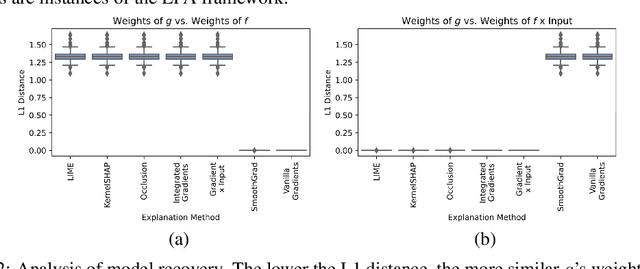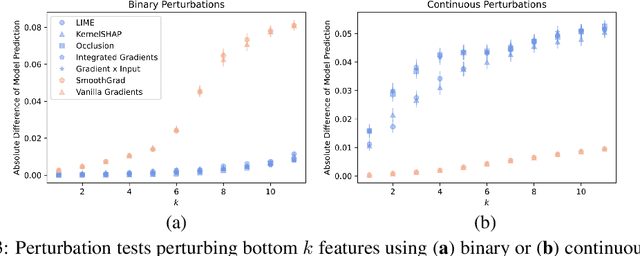Which Explanation Should I Choose? A Function Approximation Perspective to Characterizing Post hoc Explanations
Paper and Code
Jun 02, 2022



Despite the plethora of post hoc model explanation methods, the basic properties and behavior of these methods and the conditions under which each one is effective are not well understood. In this work, we bridge these gaps and address a fundamental question: Which explanation method should one use in a given situation? To this end, we adopt a function approximation perspective and formalize the local function approximation (LFA) framework. We show that popular explanation methods are instances of this framework, performing function approximations of the underlying model in different neighborhoods using different loss functions. We introduce a no free lunch theorem for explanation methods which demonstrates that no single method can perform optimally across all neighbourhoods and calls for choosing among methods. To choose among methods, we set forth a guiding principle based on the function approximation perspective, considering a method to be effective if it recovers the underlying model when the model is a member of the explanation function class. Then, we analyze the conditions under which popular explanation methods are effective and provide recommendations for choosing among explanation methods and creating new ones. Lastly, we empirically validate our theoretical results using various real world datasets, model classes, and prediction tasks. By providing a principled mathematical framework which unifies diverse explanation methods, our work characterizes the behaviour of these methods and their relation to one another, guides the choice of explanation methods, and paves the way for the creation of new ones.
 Add to Chrome
Add to Chrome Add to Firefox
Add to Firefox Add to Edge
Add to Edge